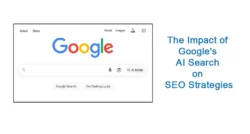The debate over whether short or long articles perform better for search engine optimization (SEO) is a critical consideration for content creators aiming to boost their visibility on search engine results pages (SERPs). Google’s algorithms prioritize content that is helpful, relevant, and user-focused, sparking discussions about whether article length influences rankings. While some argue that longer articles inherently rank better due to their depth, others champion concise content for its ability to quickly address user queries. This article explores Google’s official stance and expert insights to clarify how article length impacts SEO and provide actionable guidance for content strategy.
Understanding the role of article length in SEO requires balancing user intent with content quality. Google has consistently stated that word count is not a direct ranking factor, emphasizing instead the importance of satisfying search intent, whether through a 300-word explainer or a 2,000-word guide. However, studies and expert analyses suggest longer articles often correlate with higher rankings due to their comprehensive coverage, keyword opportunities, and ability to attract backlinks. By examining Google’s guidelines and expert perspectives, this article aims to demystify the short vs. long content debate and offer best practices for optimizing content in 2025.
Google’s Official Stance on Article Length
Google, the leading search engine, has consistently clarified that word count is not a direct ranking factor in its algorithms. The focus is on delivering content that satisfies user intent, regardless of length. John Mueller, a senior developer relations engineer at Google, has made several statements emphasizing this point:
- In a Reddit thread, Mueller stated, “Word count is not a ranking factor. Save yourself the trouble”.
- On X, he noted, “Word count is not indicative of quality. Some pages have a lot of words that say nothing. Some pages have very few words that are very important & relevant to queries”.
- In an interview with Search Engine Journal, Mueller reiterated, “From our point of view, the number of words on a page is not a quality factor, not a ranking factor. So just blindly adding more and more text to a page doesn’t make it better”.
Google’s algorithms prioritize content that is helpful, informative, and engaging for users. The length of an article should be determined by how much content is needed to fully address the user’s query. For simple queries, a concise article may suffice, while complex topics may require more extensive coverage. Google’s SEO Starter Guide emphasizes creating content with users in mind, ensuring it is easy for search engines to understand and for users to find.
Insights from SEO Experts
While Google does not use word count as a ranking factor, gs. This correlation is not due to length alone but rather the characteristics that longer articles often exhibit, such as comprehensiveness and user engagement. Below are key insights from experts:
Studies and Observations
- Backlinko Study: A study by Backlinko found that the average word count of the first result on Google is approximately 1,500 words, and content exceeding 7,000 words tends to receive more than three times the number of shares and backlinks.
- Yoast Recommendations: Yoast, a leading SEO tool provider, advises that posts or pages should have at least 300 words, with core content exceeding 900 words to ensure thorough coverage. Longer articles allow for more natural inclusion of focus keywords, synonyms, and related phrases, which can enhance visibility for a broader range of searches.
- SerpIQ Analysis: A study by SerpIQ showed that the top-ranking result on Google typically has around 2,416 words, with the tenth result averaging 2,032 words, indicating a preference for content-rich pages.
- OrbitMedia Trends: Blog posts are getting longer, with the average length now exceeding 1,400 words, reflecting a shift toward more in-depth content.
- Cyrus Shepard’s Analysis: In a 2020 X post, SEO expert Cyrus Shepard shared an analysis of 700,000 articles, noting that while long-form content may not be a direct ranking factor, it tends to be shared and linked to at a higher rate and ranks for more terms.
Why Longer Articles Often Perform Better
Experts highlight several reasons why longer articles may have an edge in SEO:
- Comprehensiveness: Longer articles can cover a topic in greater depth, addressing complex user queries thoroughly and providing detailed answers.
- Keyword Opportunities: More text allows for the natural inclusion of keywords, synonyms, and related terms, which can help the article rank for a wider range of search queries.
- User Engagement: Longer articles can keep users on the page longer, signaling to search engines that the content is valuable. This is often measured through metrics like dwell time.
- Backlinks and Shares: Studies indicate that longer content attracts more backlinks and social shares, which are significant ranking factors. For example, content with over 7,000 words gets more than three times the shares and links compared to shorter content.
- Structural Elements: Longer articles can incorporate more headings, internal links, and images with optimized alt text, all of which enhance SEO by improving structure and context.
The Case for Short Articles
Despite the advantages of longer content, short articles can still perform well in certain scenarios:
- Simple Queries: For straightforward questions or topics requiring minimal explanation, a concise article (e.g., 300–500 words) can fully satisfy user intent. For example, a definition or a quick how-to guide may not need extensive coverage.
- Mobile-Friendliness: Short articles are often easier to read on mobile devices, which is critical given the prevalence of mobile search.
- High-Quality Content: If a short article provides clear, accurate, and valuable information, it can rank well. Google’s algorithms reward content that directly addresses user needs, regardless of length.
However, short articles risk being perceived as “thin content” if they lack depth or fail to fully address the user’s query. Yoast notes that articles under 300 words may be seen as thin, reducing their likelihood of ranking highly.
Expert Consensus
The consensus among experts is that quality trumps quantity. While longer articles often perform better due to their ability to provide comprehensive information, the focus should be on creating content that is readable, well-structured, and original. Experts advise against padding content with irrelevant information to meet a word count, as this can harm user experience and SEO performance.
Benefits of Longer Articles for SEO
Longer articles offer several indirect benefits that can enhance SEO performance:
| Benefit | Description |
|---|---|
| Comprehensiveness | Covers topics in greater depth, satisfying complex user queries. |
| Keyword Density | Allows for natural inclusion of keywords, synonyms, and related terms. |
| User Engagement | Keeps users on the page longer, improving dwell time and signaling value. |
| Backlinks and Shares | Attracts more backlinks and social shares, which are key ranking signals. |
| Structural Advantages | Enables more headings, internal links, and images, enhancing SEO structure. |
Risks of Short Articles for SEO
Short articles are not inherently detrimental, but they carry certain risks:
| Risk | Description |
|---|---|
| Thin Content Perception | May be seen as low-quality if they lack depth or fail to address user queries. |
| Limited Keyword Use | Less room for keywords and related terms, limiting ranking potential. |
| Lower Engagement | Users may leave quickly if the content is too brief, impacting engagement metrics. |
Best Practices for Determining Article Length
To optimize article length for SEO, consider the following best practices:
- Analyze User Intent: Use tools like Google Search Console or keyword research platforms to understand what users are searching for and how much information they need. For example, a query like “what is SEO” may require a concise explanation, while “SEO strategies for 2025” may need a longer, detailed guide.
- Set a Minimum but Prioritize Quality: Aim for at least 300 words for general posts and 900 words for detailed content, but ensure the content is high-quality, readable, and relevant.
- Benchmark Competitors: Analyze the word count of top-ranking articles for your target keywords to gauge what’s competitive. For instance, if top results average 1,500 words, aim for a similar range while adding unique value.
- Ensure Readability: Use clear headings, short paragraphs, and transition words to make the content easy to read, regardless of length.
- Optimize for SEO: Incorporate relevant keywords, use proper heading structures, and ensure the content is original and helpful to users.
Practical Examples
- Short Article Example: A 400-word article explaining “What is a meta description?” can rank well if it provides a clear, concise definition, examples, and best practices. It directly addresses a simple query and is mobile-friendly.
- Long Article Example: A 2,000-word guide on “How to optimize your ecommerce website for SEO” can rank higher by covering technical SEO, content strategies, and case studies, providing comprehensive value for a complex topic.
Conclusion
The impact of short versus long articles on SEO is nuanced. Google does not use word count as a direct ranking factor, emphasizing instead the importance of creating high-quality, user-centric content that satisfies search intent. However, research and expert insights suggest that longer articles (1,500–2,000+ words) often perform better because they tend to be more comprehensive, offer more keyword opportunities, and attract more backlinks and shares.
Short articles can still be effective for simple queries or when concise, high-quality content fully addresses user needs. The key is to focus on quality over quantity, ensuring that the content is well-structured, readable, and valuable. By understanding user intent, benchmarking competitors, and following SEO best practices, content creators can craft articles that rank well and serve their audience effectively.







